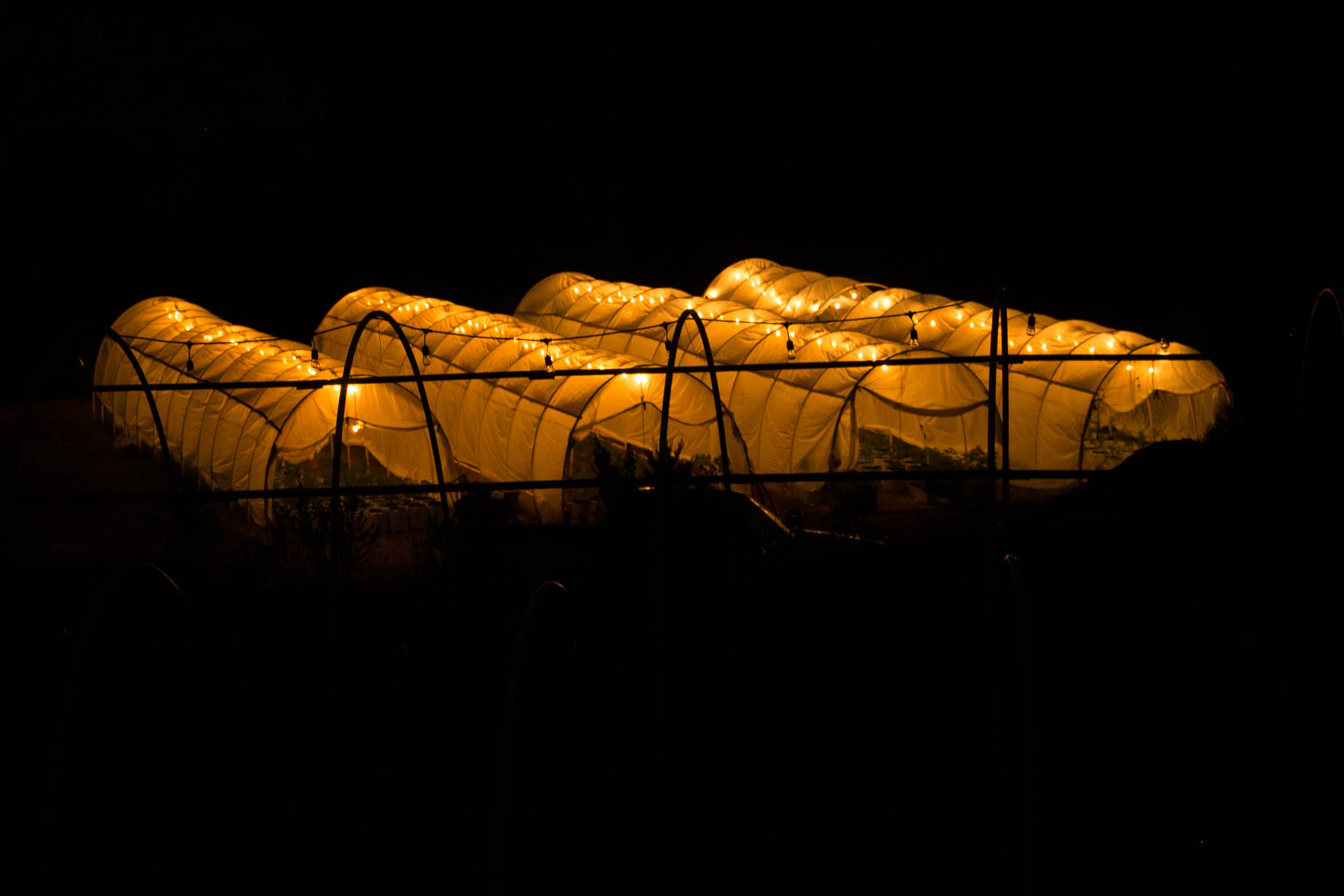
Light Deprivation
By DJ Hayes | Images by Kym Kemp, Perrl Productions & Victoria Voss
In the grand forum of cannabis cultivation there is a method in the spotlight, or rather it’s only in the spotlight for controlled periods of time. Light deprivation, or light dep, is a relatively new trend that you shouldn’t be in the dark about. Light deprivation techniques are gaining popularity and the reasoning behind it is easy to see.
Light deprivation is the technique of restricting the amount of light plants receive in a day after they reach a point in maturation. It involves pulling a dark, tarp-like cover over the greenhouse to “black-out” the sunlight. A rough calculation for the cost of the blackout cover is about fifty cents a square foot. But don’t let that estimate stop you from finding a bargain. The implementation of this method is uncomplicated; but what is the purpose of doing something that seems so drastic to those precious plants?
To start, cannabis is a plant. Plants can be manipulated and understood. A plant uses sunlight to grow which sustains itself through photosynthesis, a process used by plants to convert light into energy. In regards to light deprivation, some may wonder how could it be beneficial to essentially starve the plant regularly? To put it simply, light deprivation is tricking the plant into thinking summer is over and it is time to ripen.
Plants are simpleminded. If a farmer pulls a black tarp over their heads and told them it’s night, they will believe them. Despite the plant’s gullibility, there are several benefits to the practice of light deprivation.
First, the harvest will come quicker. A full season is roughly six months, but by utilizing the light deprivation techniques a season can be cut down to about four months. Light deprivation causes the plants to perceive that the sunny months of summer are ending, and it is time to mature. In its early life, the plant receives about 18 hours of light a day. During that period the plant grows more structure through roots and branches. When light deprivation cuts the light to 12 hours a day, the plant begins to focus on growing those beautiful reproductive flowers. This process is also known as “force flowering.”
Second, the harvest will be more potent. By forcing the plant to flower in the richest sunlight of the year, it is being fed plenty of UVB light which results in higher THC production. The better the quality of sunlight means the better quality of cannabis.
Third, light deprivation allows the farmer to have more control over his crop. This method allows outdoor growers to decide when the harvest should be. In bringing flowers to the market, timing can be just as important as quality. A industrious and well situated farmer could have multiple harvests a year, with enough effort and good fortune. This process results in better cannabis to be grown faster, while giving another degree of control to the farmer. Here comes the downsides.
It is tedious as hell. Plants are very attuned to sunlight, and in order to fully sell the ruse of an early fall to the plant, the farmer must cover and un-cover the plants at the same time every day until harvest. If done manually, it is a daily chore. If automated, it is another expense and device to power. Either way it is another act or item on the list, which makes it another thing to forget to do.
The harvest will be smaller than the long season’s yield. Cutting the growth-cycle short in the vegetative state results in less developed (smaller) plants. The plant would naturally have had an additional two months of growing bigger and stronger before it began to mature naturally. Light deprivation exchanges the potential size in lieu of speed and potency. If you were imagining a seven foot tall, five pound heavy plant with mouth-watering flowers – think again.
Light deprivation is a risk. While it is simple, it is also demanding. The plants could become seriously damaged or worse if no one is available to uncover them daily. While pulling tarps becomes another item on a long list to-do, it could also become another thing that can go wrong. Any endeavor takes the universal resource of time. The endeavor of light deprivation may be one worth the expenditure. The short season makes a stronger case for outdoor gardens, and is greener than indoor, all the while keeping its potency. Light deprivation is the forerunner in quality cannabis production. If more gardens move outdoors then we can reduce our carbon footprint from grow lights and house fires.



Leave a Reply